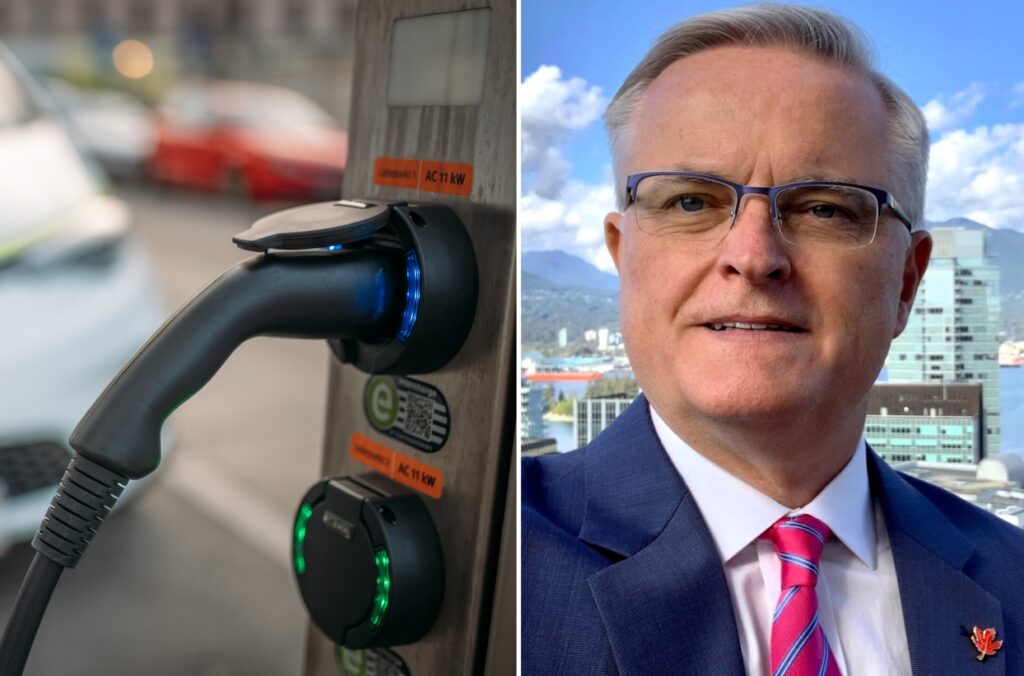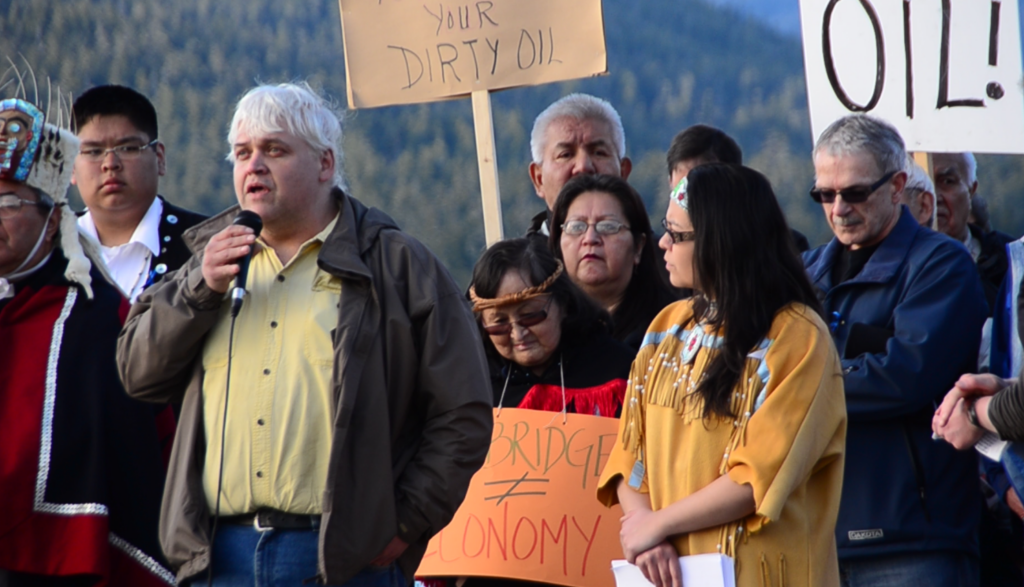On Sunday, COP26, the 26th United Nations climate change summit, will kick off in Glasgow, Scotland, in what John Kerry, the U.S. special envoy on climate, has called humanity’s “last best chance” to curb the climate catastrophe. Already, politicians and major corporations, including oil and gas producers, are hard at work promoting the idea that the 2015 Paris Agreement’s goals can be met if the financial world coalesces around “net-zero” climate initiatives.
But talk about “net zero” has been met with skepticism by many of those on the frontlines of climate change and those advocating on their behalf. A report issued today by advocacy groups Corporate Accountability, Corporate Europe Observatory, Global Forest Coalition, and Friends of the Earth International takes a look at climate strategies marketed by a half-dozen major polluters and finds that the plans come up lacking because of their heavy reliance on “net zero” strategies that presume that the institutions can continue emitting greenhouse gases as long as they are someday actively removed from the atmosphere.
BP for example has said they aim to reach “net zero” by 2050, the report notes, while Microsoft plans to become “carbon negative” by 2030. But BP still plans to spend $71 billion in the coming years on fossil fuel extraction and to promote hydrogen fuel made from natural gas, a fossil fuel, as part of an “energy transition,” the report finds, while Microsoft has continued to sell artificial intelligence products used in oil exploration and production to companies like ExxonMobil and the tech giant’s plans to reach negative emissions depend heavily on carbon “offsets.”
A recent Wall Street Journal investigation found that, while the market for carbon offsets is forecast to see rapid growth and reach over $1 billion this year, the “offsets” themselves can vary widely in their quality and effectiveness at actually reducing pollution. “The market needs clearer definitions and standards,” Microsoft’s 2021 carbon-removal report admits, according to the Journal.
The report also calls into questions plans by a company called Drax, one of the largest sources of CO2 emissions in Europe, to eventually capture up to 16 million tons of CO2 annually using Bioenergy with Carbon Capture and Storage (BECCS). “So far, Drax, in partnership with C-Capture, is struggling to capture 1/100th of the emissions it was expected to by the UK government,” the report says, “and is then releasing them directly into the atmosphere.”
It’s a pollute now, pay later strategy, the report’s authors say.
“Net-zero is this phrase that we all hear so much about and that also underpins many of the key initiatives and agendas at COP26,” said Scott Tully, a member of Glasgow Calls Out Polluters (GCOP), a grassroots group organizing for climate justice at COP26. “But net-zero, as this research reveals, leans heavily on speculative technologies and other undefined offsetting programs, amongst other mirages — all of this while big polluters keep on polluting.”
The problem with “net zero” strategies is that they too often allow rising emissions today while relying on an ability to draw greenhouse gases from the air later, campaigners say — raising grave questions about what happens if the tactics relied upon to draw down greenhouse gases don’t perform as expected.
“We all know, all of us, we have been part of researching and hard work that have gone into exposing the con called ‘net zero’ and other forms of false, false, false solutions which around here, we even prefer to call no solutions at all,” Aderonke Ige, associate director at Corporate Accountability and Public Participation Africa, said at a press conference accompanying the report. “As a matter of fact, these are death sentences for some other people in the world, especially people in the Global South, including Africans. This is a death sentence.”
There’s no question that climate change is here — and accelerating. Climate-altering greenhouse gases reached a new high in 2020, the United Nations World Meteorological Organization announced on Monday, adding that to find comparable concentrations of carbon dioxide in the air, you’d need to go back a stunning 3 to 5 million years.
“Overshooting the temperature goals will lead to a destabilized world and endless suffering, especially among those who have contributed the least to the [greenhouse gas] emissions in the atmosphere,” Patricia Espinosa, head of the UN climate office, told the Associated Press. “We are nowhere near where science says we should be.”
The speed at which greenhouse gases are added to the air continues to accelerate, despite the impacts from the ongoing Covid-19 pandemic, the UN found.
Climate Madness: Saudi Arabia pledges net zero by 2060 while excluding its world-leading oil & gas exports from the emissions measured – and making no mention of reducing investment in oil and gas
— Assaad Razzouk (@AssaadRazzouk) October 24, 2021
Just about sums up the “net zero” twilight zone https://t.co/3PsDxQkYeB #COP26
This report highlights the net zero goals of a half-dozen major institutions: BlackRock, the world’s largest asset manager; tech giant Microsoft; oil and gas giants BP and Shell; Drax, a bioenergy company that the report notes was recently revealed as “the UK’s biggest single source of CO2 emissions;” and the International Emissions Trading Association, a trade group that promotes carbon trading markets.
“We looked at oil and gas majors BP and Shell, who together have allocated more than $17 billion to oil and gas production this year alone and both are intending to spend tens of billions more in the years to come to ramp up gas production,” said Pascoe Sabido, researcher with Corporate Europe Observatory, and one of the report’s authors. “Yet somehow, that’s consistent with their net-zero plans, which I think says a lot about net-zero.”
“Their plans rely on expensive experimental technologies,” Sabido added, “like carbon capture and storage, voluntary carbon markets, and massive forestry offsetting.”
In challenging “net zero,” the campaigners are taking on strategies that have been baked into the UN Intergovernmental Panel on Climate Change (IPCC) approach to keeping climate heating below 1.5 degrees Celsius (2.7 degrees Fahrenheit), a level scientists recommend to avoid catastrophic impacts. The IPCC’s Sixth Assessment, released in August, emphasizes that limiting climate change requires capping total carbon dioxide emissions, “reaching at least net zero CO2 emissions,” and making major cuts in methane and other greenhouse gas emissions.
If emissions had peaked back in 2000 we would be skiing down a bunny slope toward 1.5C. Today we face a double black diamond, and in a few years it will be a cliff.
— Dr. Zeke Hausfather (@hausfath) October 26, 2021
We are almost certainly going to overshoot 1.5C and need large-scale permanent carbon removal to get back down. pic.twitter.com/sSyofom3PV
Asked about the report’s findings, Microsoft emphasized the IPCC’s views on net zero.
“To avoid a climate catastrophe by 2050, the best science says the world must cut its carbon emissions by half and then remove the rest. That’s the approach we’re taking to achieve our goal of being carbon negative by 2030,” Microsoft said in a statement provided to DeSmog, adding that the company is “committed to working with all our customers, including those in the oil and gas business, to help them meet today’s business demands while innovating together to achieve the business needs of a net zero carbon future.”
As of press time, BP, BlackRock, and Drax had not responded to questions from DeSmog about the report and its findings.
Drax generates power from burning wood pellets, or “biomass,” a process it markets as renewable energy but that generates significant greenhouse gas pollution. On October 25, a collection of environmental groups separately filed a complaint with the Organisation for Economic Cooperation and Development (OECD) accusing the company of greenwashing. “The world’s leading authority on climate science, the UN’s IPCC, is absolutely clear that sustainable biomass is crucial to achieving global climate targets,” Drax told the Financial Times in response to that complaint. “The science underpinning carbon accounting for bioenergy is also crystal clear. It was set out by the IPCC and then reaffirmed by them in 2019 following review by thousands of the world’s leading climate scientists.”
But the new report’s authors are also hardly alone in questioning whether “net zero” strategies are reliably effective at actually reducing global heating and its impacts. “These pledges are powerful, visible, simple … and utterly insufficient,” Rahul Tongia, a Brookings Institute senior fellow, wrote in a post published Monday. “At best, we still over-emit. At worst, these discriminate against poor, low-emitting countries, and could even push greenwashing — creating the false impression that countries’ policies are more environmentally friendly than they actually are.”
And attempts at removing greenhouse gases from the air have a troubling track record. Despite billions in investment, attempts to make carbon capture work at a commercial level have largely flopped. Just this month, a never fully functional carbon capture plant in Kemper, Mississippi, was demolished after Southern Company, one of the largest utilities in the U.S., sunk over $7.5 billion into a failed attempt to create a “clean coal” power plant capable of capturing its carbon emissions.
“I mean, give me a break on CCS [carbon capture and sequestration],” said Rep. Ro Khanna (D-CA). “We all know that it doesn’t work in any way that it’s advertised.”
Rep. Khanna, who chairs the House’s Oversight and Reform Subcommittee on Environment — which will soon be holding a widely-anticipated hearing where the CEOs of major oil companies and their trade associations will testify on climate disinformation — also highlighted the oil and gas industry’s long history of deception and misdirection on climate change.
“Big Oil not only lied to the American public about the reality and dangers of the climate crisis, they continue to churn out propaganda that downplays their central role in the greatest existential threat to humanity of our time,” Khanna said in a statement released alongside the new report.
“The fossil fuel industry’s ‘net zero’ campaign is just one more way Big Oil is trying to deny responsibility for their central role in climate disruption,” Khanna said, “as extreme weather, flash floods, fires, and record-breaking temperatures wreak havoc for life on earth.”
CORRECTION (10/27/21): The original version of this article stated that Microsoft planned to become “net zero” by 2030. The company plans to reach net zero shortly before 2030 and additionally plans to “remove from the environment all the carbon the company has emitted either directly or by electrical consumption since it was founded in 1975” by 2050.
Subscribe to our newsletter
Stay up to date with DeSmog news and alerts







